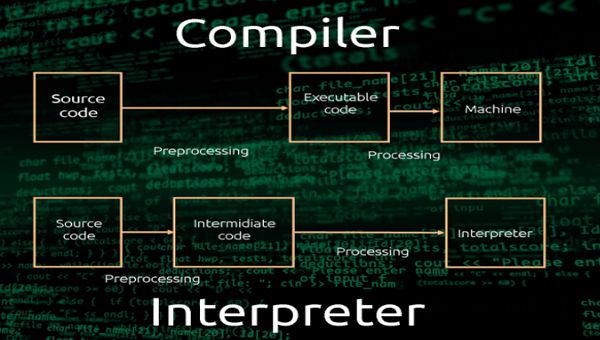
Interpreted programs are interpreted line-by-line every time they are run.Įrrors are reported after the entire program is checked for syntactical and other errors.Įrror is reported as soon as the first error is encountered. Compiled program does not need to be compiled every time. As a result, interpreted programs are more memory efficient.Ĭompile once and run anytime. Interpreter does not generate intermediate object code. Interpreter execute conditional control statements at a much slower speed.Ĭompiled programs take more memory because the entire object code has to reside in memory. Interpreter does not generate intermediate object code or machine code.Ĭompiler executes conditional control statements (like if-else and switch-case) and logical constructs faster than interpreter. It takes one statement at a time as input.Ĭompiler generates intermediate code, called the object code or machine code. The difference between the functioning of compiler and interpreter will be clear from the table of comparison given below: #Ĭompiler works on the complete program at once.

Task of interpreter is also more or less the same but interpreter works in a different fashion. Now we already know what a compiler does. The following video will further help you in understanding the concept and working of a compiler: Computers can understand binary code and therefore they can execute instructions written by humans using programming language. When humans remove all these errors, compiler converts the program into binary code (also known as machine code or object code). This is where compiler comes in scene.Ĭompiler is a software that checks a computer program (called source code) and lists all the errors found. We also need something to convert programming language into binary language for the consumption by computer. It is essentially a predefined syntax of writing logical computer instructions which humans can also understand.

Programming language is not plain English. This intermediate language is called - the programming language. To get around this problem a middle path of an intermediate language is used to convey human commands to the computers. The problem is that we are not comfortable with binary and computers find our languages too difficult to understand. We humans feel most comfortable if we could issue instructions by writing plain English or Hindi programs for computers.


Computers are machines and for them it is much easier to work using a simpler encoding of 0s and 1s. Alphabet of computers contains only two letters, namely zero and one. While humans speak languages like English, French, Hindi, Spanish, Chinese, Japanese, Arabic etc. First of all you need to understand that computers and humans speak different languages.


 0 kommentar(er)
0 kommentar(er)
